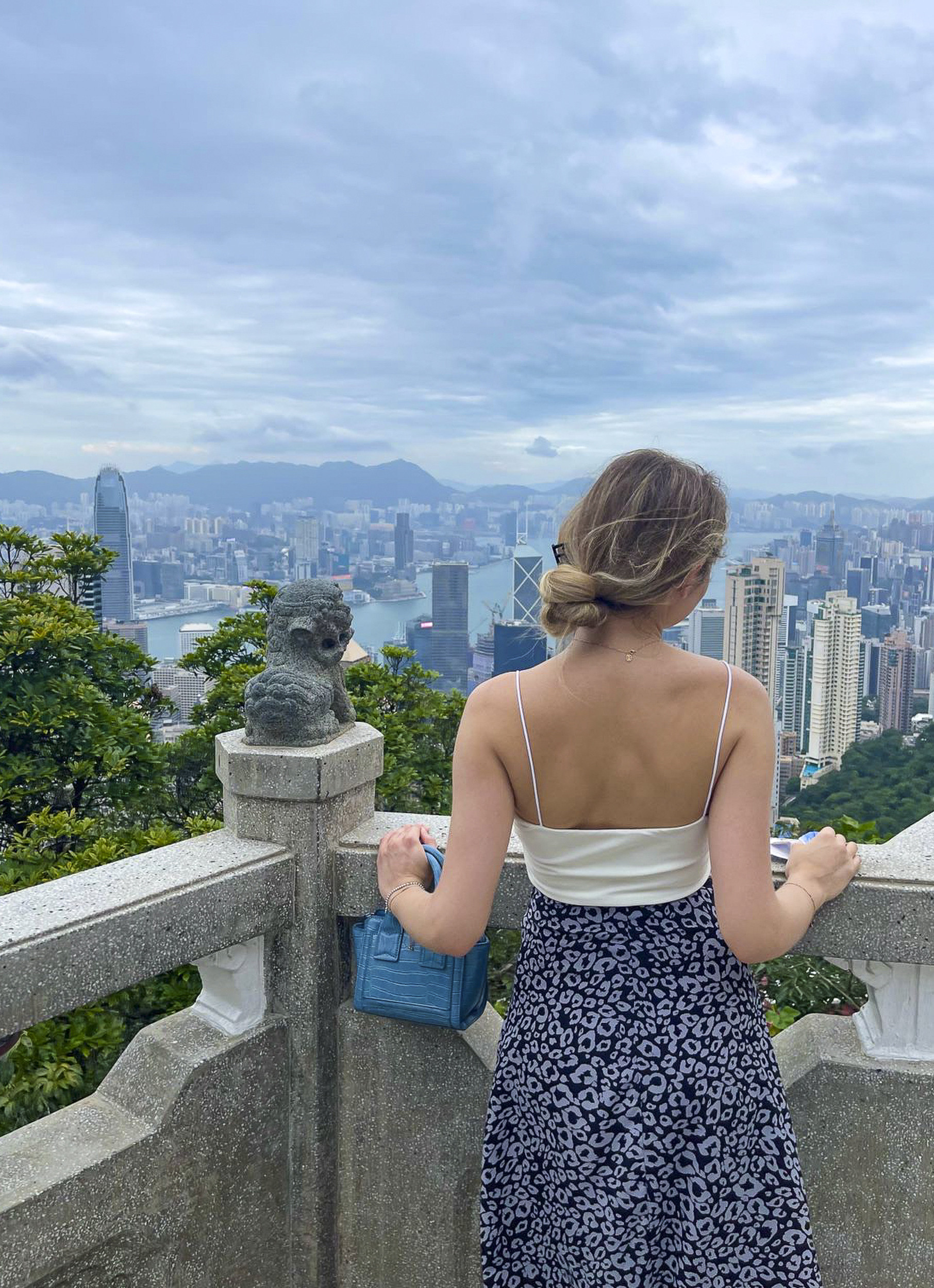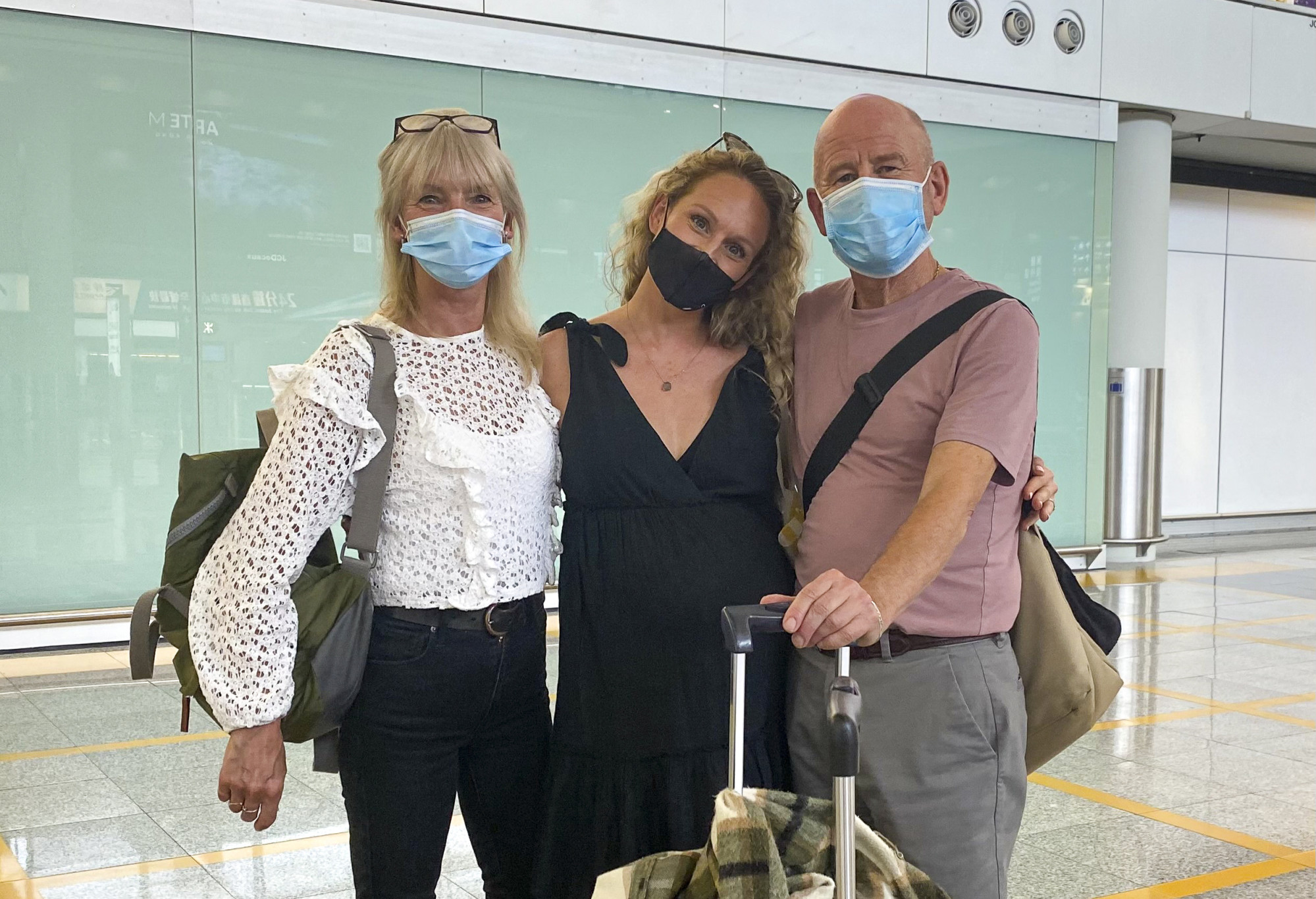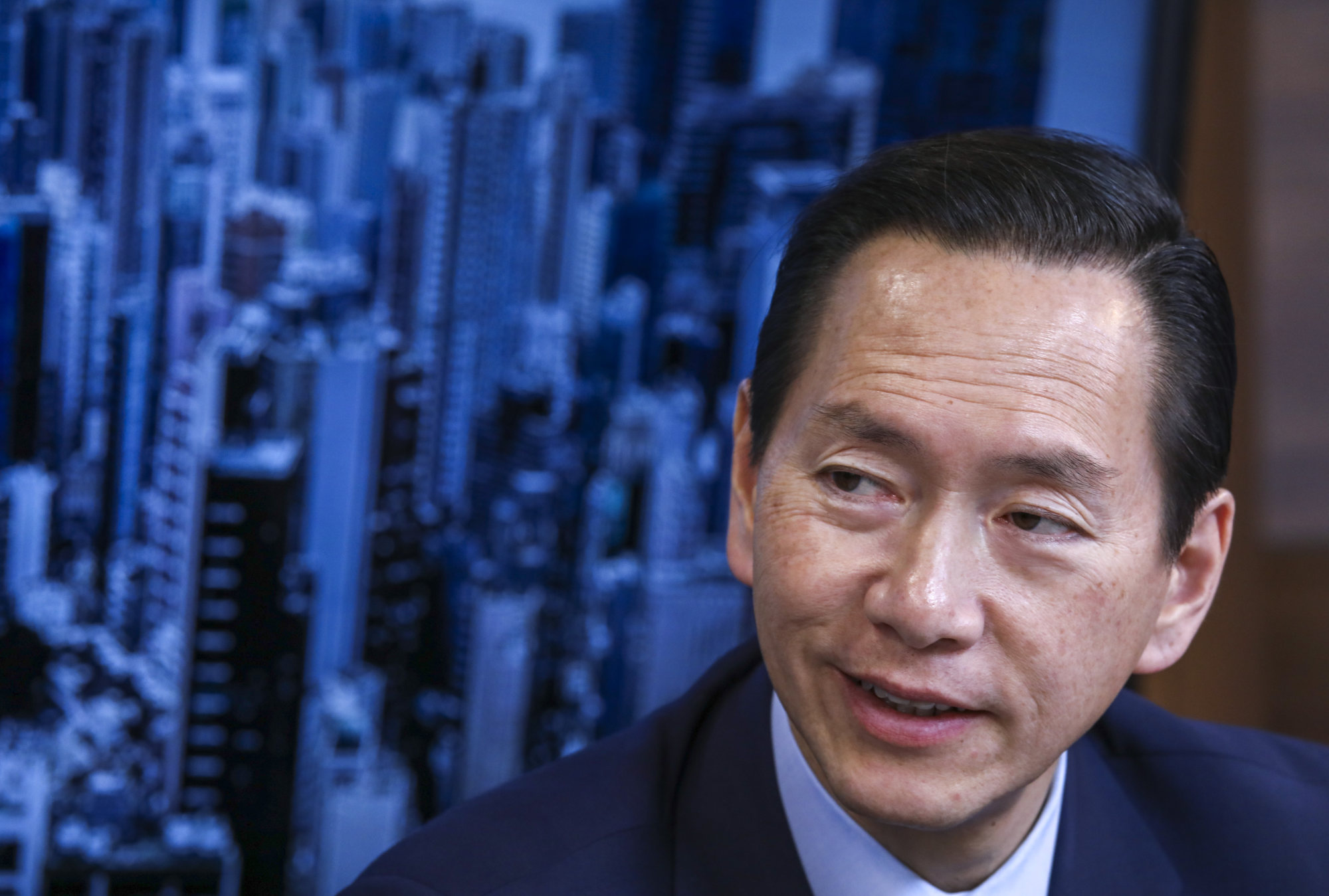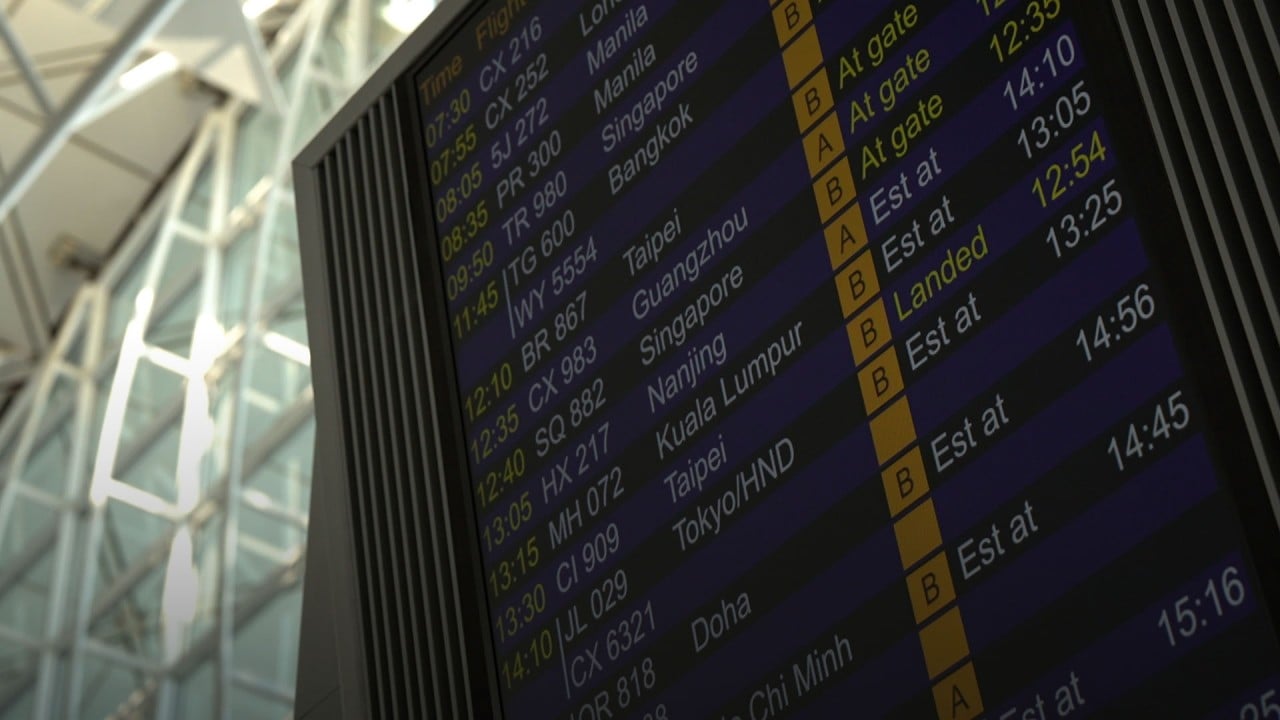
No more quarantine: Hong Kong visitors happy to find coronavirus travel rules eased
- First arrivals after pandemic rules changed on Monday make the most of ‘extra days’ to explore city
- No indication from first few days that more travellers are coming because restrictions have eased
Russian student Sophia Edifanova arrived in Hong Kong on Sunday, expecting to spend three days in quarantine in a hotel.
But the next day, she was free to explore the city, as Hong Kong eased its coronavirus rules for travellers, doing away with compulsory quarantine in a hotel.
“I went to Victoria Peak and the park near my hotel … it was really beautiful,” said the 19-year-old from Moscow who is headed to Guangdong University of Technology in Guangzhou.

The lack of direct flights between Russia and mainland China meant she had to spend three days flying first to Azerbaijan and then Qatar, before arriving in Hong Kong.
So she was grateful that the city switched to its “0+3” regime on Monday, requiring visitors to monitor themselves for Covid-19 for three days, at home or at a hotel, without compulsory quarantine. They are free to move about during the period of medical surveillance, but not allowed into some premises such as restaurants and bars.
The arrangement replaced the earlier “3+4” regime comprising three days of hotel quarantine followed by four days of medical surveillance at home.
The change, announced on September 23, did not result in an immediate surge in visitors.
Returning Hong Kong residents made up nearly three quarters of the 7,558 arrivals on Tuesday, the second day of the new regime, while travellers from the mainland accounted for a fifth, and only 515 visitors were from elsewhere. The breakdown was similar the next day.
Official statistics showed Hong Kong recorded 7,514 and 7,872 arrivals on Wednesday and Thursday, respectively. The number rose to 8,907 on Friday, with residents making up more than 70 per cent of the figure.
None of the travellers who spoke to the Post at the airport came because the city’s coronavirus restrictions were relaxed.
Retired couple Karen Ruth-Beare, 63, and David Beare, 64, arrived on Wednesday from Manchester in the United Kingdom to visit their daughter who is having a baby, their first grandchild.

When they were planning their trip in February, they booked seven days at a quarantine hotel, as that was the requirement at the time. Then it became three days, and by the time they arrived, there was no more hotel quarantine.
“We are absolutely pleased about it,” Ruth-Beare said. “We will spend a lot of time with our daughter and her husband, and we are hoping to do some sightseeing and hiking. It’s a lovely city.”
Also pleased with the new rules was Miodrag Stojkovic, 58, a professor of human genetics from Serbia visiting Polytechnic University for a week. He said undergoing three days of medical surveillance did not matter too much.
“Everything is provided by the hotel, with three meals a day,” he said. “I always have something to do. I can use the time for plenty of reading, writing and so on. So it will not be boring.”
He added that his visit was an opportunity to experience a region outside Europe, especially since the pandemic had made travel more complicated than before.
“I’m happy to be seeing people face to face, and I’m done with Zoom meetings, which are very boring,” he said.
Belgian data scientist Domien van Damme, 28, who came to Hong Kong to see his girlfriend, said he did not mind the three days of medical surveillance as the pandemic was still ongoing.
“I think it’s good that there are some security measures. In Belgium, the number of Covid cases is going up again, so it’s better to be safe,” he said.
Fanny Yeung, executive director of the Travel Industry Council, on Saturday said the local tourism industry had yet to recover under the “0+3” arrangement, as most of the inbound arrivals were returning residents rather than overseas tourists.
Yeung said she did not expect many tourists to come to Hong Kong for the present, adding that the number of business travellers had not risen significantly either.
The overall airline capacity for Hong Kong only amounted to one-tenth of the pre-Covid level and was only expected to increase to 30 per cent of the previous amount by the end of the year, she said.
Timothy Chui Ting-pong, executive director of the Hong Kong Tourism Association, said around 1,600 out of some 1,700 travel agencies in the city were unable to benefit from the relaxed entry curbs because inbound tourism had not recovered, while a limited number of flights had also affected outbound travel.
He said he expected hotel business would drop, especially for venues located in downtown areas without supporting facilities. An occupancy rate of 40 to 50 per cent would be optimistic, Chui added, urging the government to adopt the “0+0” model as soon as possible.

Bernard Chan, a former convenor of the Executive Council, a top decision-making body, said he expected the “0+3” arrangement would remain in place for one to two months, with authorities only opting to drop the three-day surveillance period once a review of the data had confirmed the city’s medical system would not be affected.
As travellers were still required to take nucleic acid tests for Covid-19 upon arrival, they would not choose to come to Hong Kong because they wanted to avoid being quarantined in a hotel if they were confirmed to be infected, he said.
Chan suggested that authorities scrap the testing requirements soon to attract more overseas travellers, in addition to relaxing restrictions imposed on those issued amber healthcodes, which limited the movement of the arrivals in the city.
“People have other options and do not have to come to Hong Kong. If we do not remove all the restrictions, we will not be able to return to what it was before the pandemic,” he said, adding that Singapore was perceived as the “winner” under the circumstances because it had opened up much earlier.













